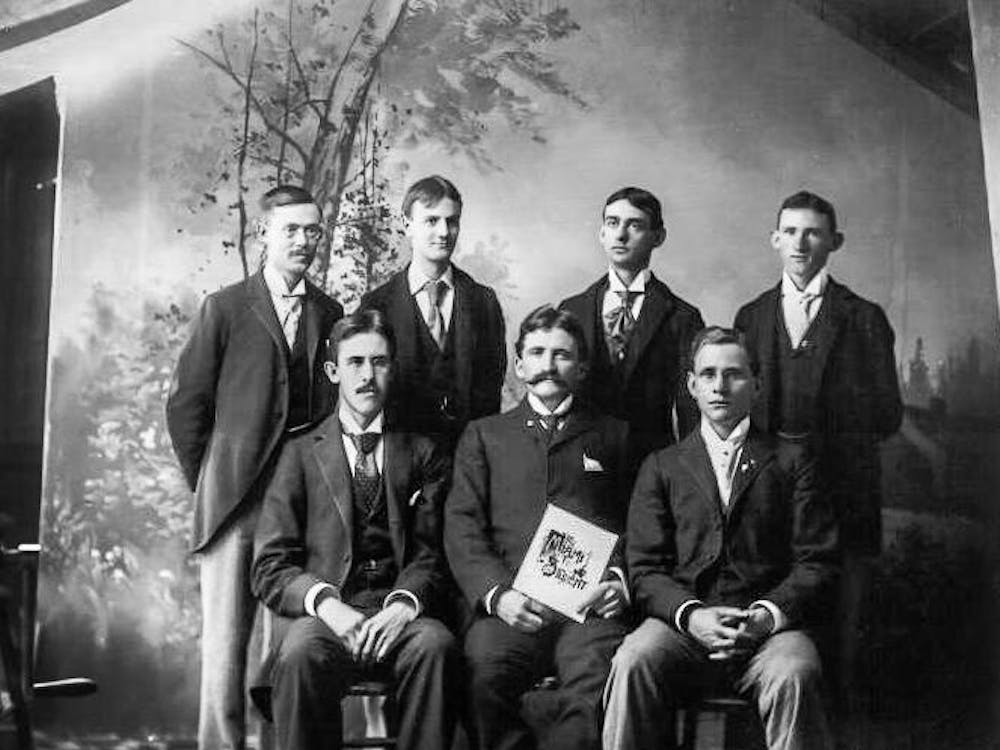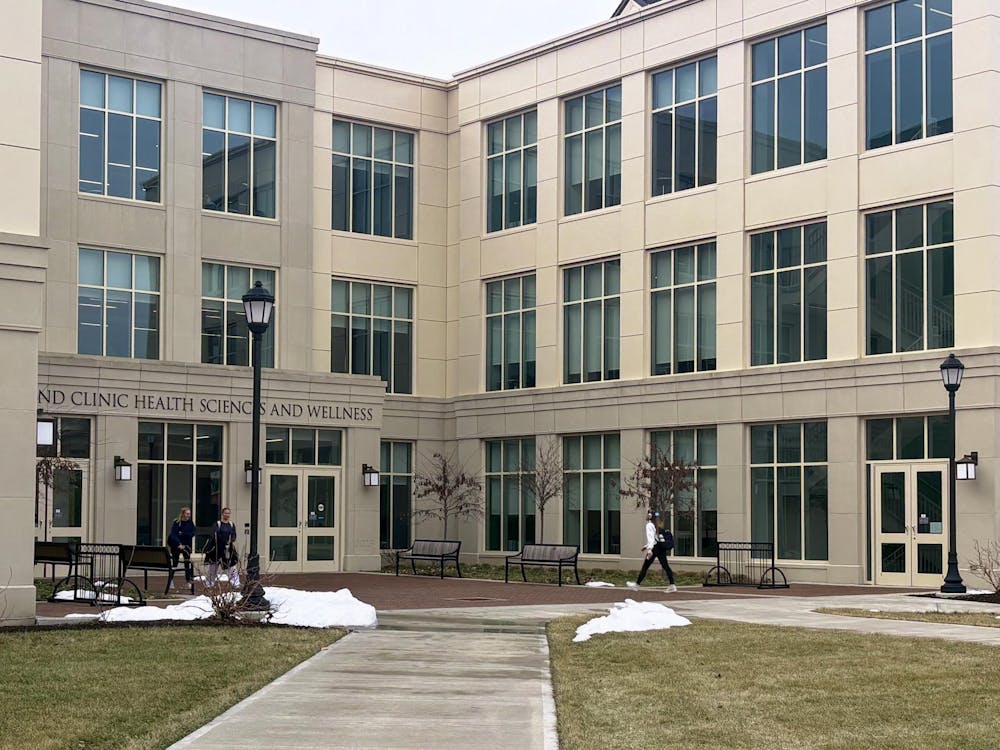Karin Ruhlandt, one of the finalists for Miami University’s provost search, participated in an open forum on Nov. 30.
Ruhlandt is a distinguished professor of chemistry at Syracuse University, the first woman in the university’s science department to hold that title.
Ruhlandt joined Syracuse in 1991 and has served various roles including chemistry department chair and dean for the College of Arts and Sciences. During her time at Syracuse, she also led a program called ADVANCE, which tries to grow the number of female students in STEM programs.
Ruhlandt has earned multiple awards, including a Fulbright Fellowship and the National Science Foundation Career award.
Her work has also taken her around the world. She studied chemistry in Germany and has worked as a visiting professor in Austria, Australia and New Zealand. She began the forum by saying she was happy to make it to Miami.
“I love your commitment to students and research, and it really shows,” Ruhlandt said. “It very much aligns with what I’m passionate about, so I’m very happy to be here.”
Audience members then asked Ruhlandt specific questions, which have been paraphrased below with her responses. Miami asks for people to provide feedback on Ruhlandt for the provost search using this form. The form is open until Dec. 5.
Q: What skills do you bring that will help you interact with the different opinions at Miami?
Ruhlandt: “One of the privileges of academia is to be surrounded by other smart people, and not listening is absolutely stupid. It’s plain unwise … How I actually really choose to work is in a very collaborative partnership with the people I work with … There are a couple of basic rules of how to work together; a big one is respect. Really, treat each other with respect and be honest and open and transparent.”
Q: Why do you want to be a provost?
Ruhlandt: “[As dean,] you can only try to convince the other deans to work with you. If they don't like it, they don't like it, and so I love thinking and I love bringing people together. And now I think for moving from dean to provost, I will be able to do that.”
Q: What is your vision for the future of internationalization?
Enjoy what you're reading?
Signup for our newsletter
Ruhlandt: “I think every student should go abroad because I do believe that it really adds to everybody's education. It’s a little bit tricky because not everybody can afford going abroad, and that's a big, big issue … I actually believe having international students on campus is a huge part of diversity, because I really think one should think about diversity in the broadest terms, and that includes having students from all over.”
Q: What are strategies you’ve used for faculty retention?
Ruhlandt: “There are a couple of things: people need to be happy … climate is key, and what really helped us was partner accommodations … Some people need to be appreciated, and they need to find a situation which makes them happy, and if your partner lives somewhere else, that’s not good … When I heard people were considering and looking elsewhere, we went in early and had conversations with these faculty members about what they needed.”
Q: What is your experience with the advocacy for liberal education?
Ruhlandt: “I believe a liberal arts foundation in any professional setting is in good shape, and it's really setting people up for success … It is something to defend.”
Q: Do you think in a digitally-driven world, arts and humanities majors should be required to take engineering and computing courses?
Ruhlandt: “I was at home listening to NPR and was listening to a major lawmaker from Texas, mixing up global warming with global wobbling. So I remember listening to that and being really upset, and what I decided that afternoon was that we needed to do something to educate lawmakers, at least a little bit about sciences. And so we came up with this joint degree program with connecting between the sciences and policy studies, and it is a degree program which is between arts and sciences … It is now the fastest growing major and it has really taken off. And I think that is a wonderful example of interdisciplinarity, a broad education … Giving people the tools to continue is really what is important.”
Q: What would you do in response to racist incidents on campus?
Ruhlandt: “[I mandated] every student to take a social justice course. I felt that it would not be wise to graduate a student who had no exposure to the backdrop … In order to make it easy on the curriculum, we allowed these courses to be counted as the social sciences and humanities requirements, especially for students who have a really tight [schedule].”




